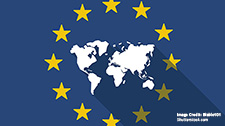The Fight Against Money Laundering in Latvia and Sweden
Walter Kegö
The common denominator in all transnational criminal activities is money laundering, the process by which the proceeds of illegal activities are converted into means for legal investments. The fight against money laundering means combating large scale crime. The World Bank and the International Monetary Fund (IMF) estimate that shadow transactions amounted to between US$6.5 trillion and US$9 trillion, equaling 20-25% of total global GDP. On the other hand, the United Nations International Drug Control Program (UNDCP) assesses the annual turnover from the entire criminal market to be around US$1500 billion. This Policy Brief summarizes the proceedings of the Workshop on Money Laundering organized by the Institute for Security and Development Policy, and the Riga Stradins University, Latvia, held May 28, 2010.
Related Publications
-
Europe, It’s Time to Wake Up on Research Security
Europe’s innovation scene is vibrant. It leads in automotive tech, green energy, and critical dual-use technologies. Yet, for all its brilliance, the EU is leaving its doors wide open. State-sponsored actors […]
-
Navigating the Indo-Pacific: How Australia and the EU Can Partner for Peace, Stability, and Prosperity
To navigate the choppy waters of the Indo-Pacific, the EU and Australia must be on the same wavelength regarding shared interests in rules, values, and an open and liberal economic […]
-
Partners in Peace: Why Europe and Taiwan Matter to Each Other
This book addresses the following fundamental questions: With the EU seeing Taiwan as a partner on its own merit (rather than exclusively through the China factor lens), how can the […]
-
The US and EU, and the Emerging Supply Chain Network: Politics, Prospects, and Allies
The Global Supply Chains have evolved from simply logistical achievements to being the bedrock of the global economy. Driven by technological advances and geopolitical shifts, this transformation underscores the critical […]
-
Nepal Is Hardly China’s Best Bet in the Himalayas
In July, Nepal’s fractious politics witnessed yet another churning in a span of months: 72-year-old veteran politician Khadga Prasad Sharma Oli of the Communist Party of Nepal–Unified Marxist Leninist (CPN–UML) […]




